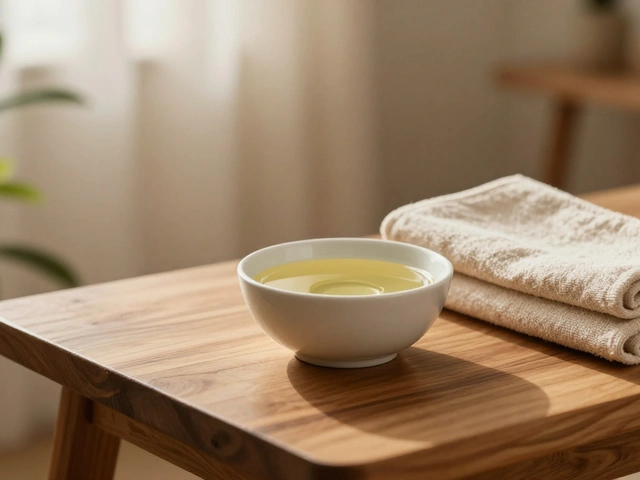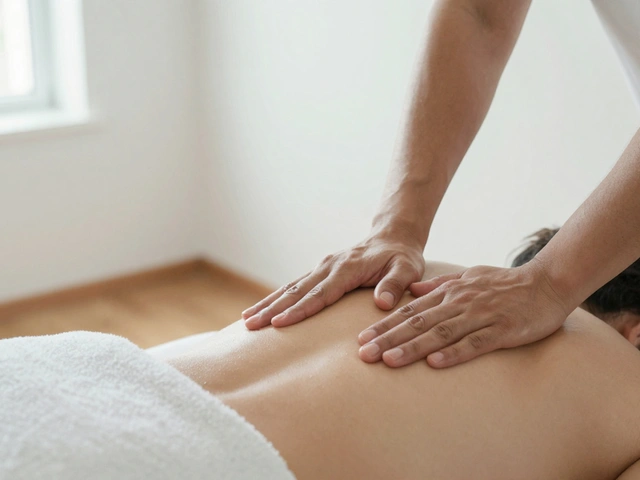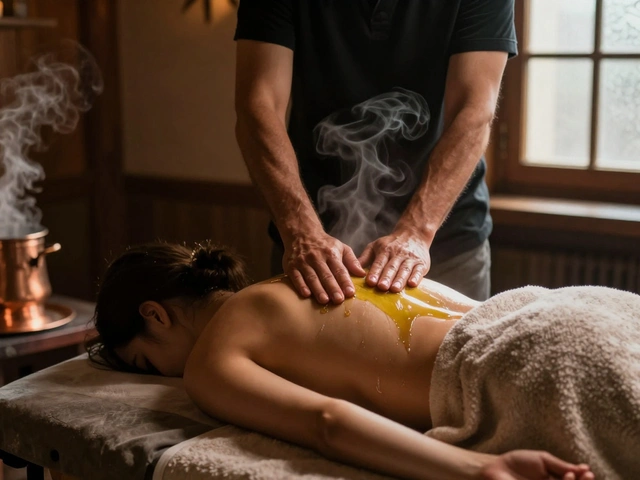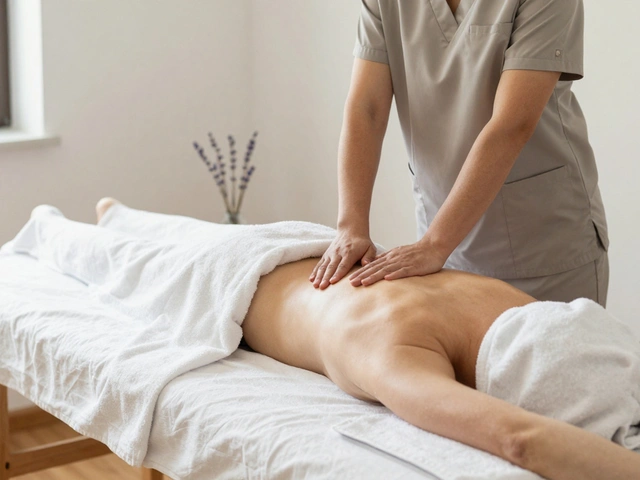Key Points
- Yoni massage promotes self-love, emotional release, and deeper body awareness for women.
- Sessions are safe when done by experienced, respectful practitioners who prioritize consent and comfort.
- You can find yoni massage options ranging from therapeutic touch to energetic healing, and even guided self-massage sessions.
- Clear communication and professionalism are crucial—don’t hesitate to ask about credentials or boundaries.
- This modality can empower women to embrace their bodies, let go of shame, and experience profound relaxation and healing.
Direct Answer
Yoni massage is a therapeutic, mindful form of bodywork focused on honoring and healing the female body. It can involve external and internal touch (always with explicit consent), aimed at emotional release, releasing tension, and empowering women to reclaim their sense of bodily autonomy and pleasure. It is not a sexual service but a practice rooted in respect, intention, and healing. Always check your local laws and choose only trained, trauma-informed professionals.
Comprehensive Guide to Yoni Massage: Reclaim Your Body
Most people first hear about yoni massage and feel curious, maybe a little nervous, or even skeptical. Why all the fuss? Let’s talk straight: yoni massage isn’t about trends or buzzwords. It’s about women finally having permission to experience their bodies without shame or judgment. Picture this—you’ve carried stress, guilt, or disconnect in your pelvis for years. Maybe from old breakups, health scares, or just the everyday pressure of being a woman in 2025. Now imagine slowly melting away that tension through guided touch, breath, and kindness. That’s what empowers so many women to try yoni massage.
The popularity of this practice is global—and growing. If you search "yoni massage" today, you’ll see practitioners in cities from New York to Berlin, speaking openly about topics that used to be totally taboo. There’s something pretty rebellious about women gathering to talk about pleasure, boundaries, and healing. It isn’t about getting someone else to “fix” you. It’s about tapping into your own innate wisdom, with a little expert help if you want it. Women report feeling lighter, sleeping better, and even having breakthroughs in relationships after just one session.
Modern yoni massage takes inspiration from ancient traditions—think of sacred temple rituals in India and Taoist bodywork from China. The word “yoni” itself comes from Sanskrit, meaning “sacred space,” and is used to honor the entire vulva and pelvic area. Forget the idea that yoni massage is strictly sexual or intimate in a romantic sense. The real aim is healing, honoring, and letting go of shame. If you have ever felt disconnected from your own pleasure or struggled with pelvic pain, this work gives you tools to start coming home to yourself.
Let’s get practical: yoni massage can help with everything from chronic tension and numbness to releasing triggers from past traumas. It’s also just about self-care—think of it like a personal spa day with therapeutic benefits. No, you don’t have to undress if you don’t want to (consent is always first). Some sessions start fully clothed, using breathwork and gentle touch on the belly, hips, and thighs. You choose what feels safe for you, and a good practitioner supports your boundaries one hundred percent.
If you want an extra layer of empowerment, guided self-yoni massage is a growing trend. Practitioners coach you over video chat or in a safe space, giving you instructions for touch, breath, and affirmations—so you remain completely in control. Imagine being able to reset your nervous system, clear away shame, and spark your confidence—all while honoring your body’s wisdom.
Definition and Context
What exactly is yoni massage, and where does it fit in our world? Let’s break it down without any sugar-coating. "Yoni" is a Sanskrit word that shows up in ancient Hindu, Buddhist, and Tantric texts. Historically, the practice focused on honoring feminine sexuality and creativity, not just anatomy. Today, it’s a bodywork therapy targeting the vulva, vaginal canal, and pelvic area—sometimes including the abdomen and hips. But it’s not just about the physical. Skilled practitioners use talk, breathwork, and mindfulness to help you reconnect with emotions stored in the body.
This matters because science now backs up something ancient cultures already knew: our bodies hold tension and trauma, especially in places we ignore or feel ashamed of. A Stanford University study from 2021 found that somatic therapies (therapies that address the body directly) can reduce PTSD symptoms by up to 44%. That’s huge for anyone who’s felt stuck because of trauma or stress. Pelvic pain affects one in seven women worldwide. Yoni massage provides a powerful, embodied way to address those aches—and the emotions buried underneath them.
The social context is bigger still. For centuries, women have been taught not to talk about their sexuality or even look at their own bodies without shame. Yoni massage turns all this upside down. It’s not therapy in the traditional sense, but the results often feel therapeutic: clients talk about feeling seen, understood, and more confident. The process is all about inviting more pleasure and less guilt into daily life.
You might be surprised to learn that yoni massage is available in wellness centers, coaching hubs, and even luxury spas across major cities. This isn’t underground or fringe anymore. In the last five years, the conversation about female sexual wellness has gone mainstream—think Goop, Gwyneth Paltrow, and Dr. Jen Gunter tackling the topic head-on. Women want more than just "relaxation." They want healing, knowledge, and agency.
For those not ready to jump right in, online courses and books make it easy to learn at your own pace. One bestselling guide, “Urban Tantra” by Barbara Carrellas, includes entire chapters devoted to self-yoni massage, journaling, and breathwork. You can start alone or with a trusted partner if that feels right for you. What matters most? Doing it on your own terms, at your own pace, and only with people you trust.
Benefits of Yoni Massage
The list of benefits runs way deeper than surface-level relaxation. Raise your hand if you’ve ever felt disconnected from your own body or doubted your right to feel pleasure. That’s where yoni massage steps in—the best sessions aren’t just calming, they are life-changing.
- Physical Benefits: This massage helps relax pelvic floor muscles, increases blood flow, and supports healing from childbirth, surgery, or even period cramps. It can improve lubrication, boost sensation, and reduce genital pain. According to a 2023 survey by the American College of Obstetricians and Gynecologists, 68% of women who tried somatic pelvic therapy reported less chronic pain within three sessions.
- Emotional Release: Ever cry out of nowhere during a massage? That’s your body letting go of stored-up stress or trauma. Yoni massage does this on a bigger scale, often shifting old emotional blocks or stories about worthiness, shame, or guilt. Afterward, women say they feel lighter and sometimes happier for days.
- Empowerment and Body Positivity: Facing your body, getting curious, and exploring sensations creates a sudden, radical acceptance. Women talk about newfound confidence, better boundary setting, and more comfort asking for what they want—in life and in bed.
- Better Sex and Relationships: Reclaiming comfort in your own skin spills over everywhere. More awareness means you notice what pleasure feels like—instead of just going through the motions. Many women report improved intimacy with partners and fewer issues with arousal or sexual anxiety.
- Deeper Mind-Body Awareness: When you tune into your pelvis, you tune into your intuition. Practitioners say that regular yoni massage boosts mindfulness, eases anxiety, and even helps with sleep. It’s a ripple effect.
Real-life testimonials are almost poetic. A recent client from London shared: “After my first yoni massage, I walked home taller. For the first time, I didn’t just ‘own’ my body—I was my body.” That’s big, right?
If you’re thinking this sounds too good to be true, check the research. Somatic sex educators have increasingly joined forces with therapists, pelvic floor physical therapists, and coaches to measure these results. An Australian study from 2022 showed that women who received integrative pelvic bodywork reported 37% more satisfaction in daily life and 44% lower levels of self-criticism. That doesn’t mean it’s a magic fix—all healing is a journey—but the changes are real.
Types of Yoni Massage Available
If you think “yoni massage” means just one thing, think again. The practice comes in different shapes and flavors, depending on your comfort level, goals, and beliefs.
- Classical Yoni Massage: Rooted in Tantra, this involves gentle external and, with consent, internal touch on the vulva and vaginal canal. Pressure is never rushed. Often combined with slow breathing, visualization, and communication throughout.
- Energetic or Reiki Yoni Healing: Some practitioners combine energy work or Reiki with hands-on bodywork. This is great for those uncomfortable with touch but who still want to address pelvic tension or trauma.
- Self-Yoni Massage or Guided Self-Practice: You can absolutely learn to give yourself this massage. Plenty of courses and books show how to use oil, breath, and gentle touch to release tension at home. For first-timers, virtual coaching is available.
- Trauma-Informed or Therapeutic Yoni Bodywork: These practitioners get special training in helping clients with trauma or high anxiety. They tend to use minimal invasive touch and emphasize talk, boundaries, and slow pacing.
- Couples Yoni Massage: Some therapists lead guided sessions for couples, teaching partners how to give yoni massage in a loving, consensual, and connected way.
Options aren’t just about technique—they’re about you. Some women want a deeply spiritual ritual; others prefer a simple, science-backed approach. Always check a practitioner’s credentials. Ask about their training in trauma care, anatomy, and consent. Real pros are happy to share certificates or even client testimonials. Many good practitioners will offer a phone or video consult before booking, which is a great time to air questions, worries, or curiosities. If anything feels off, trust your gut. Your safety comes before everything.

How to Find Yoni Massage Services
Ready to explore? Finding a professional yoni massage service isn’t hard, but it does take care. The safest route is to look for practitioners who list credentials from reputable groups like the Association of Somatic and Integrative Sexologists, the American Massage Therapy Association, or who are licensed bodyworkers or therapists with extra training in pelvic health. Ask for titles like “somatic sex educator” or “pelvic therapist.” Watch for clear, professional websites—avoid anyone whose site seems all about sex or pleasure without mentioning boundaries, consent, and trauma-informed care.
Here’s a simple checklist:
- Check for clear professional qualifications (certification, license, trauma-informed training).
- Read reviews on Google, Yelp, or Facebook—and look for red flags around professionalism.
- Ask practitioners about their protocols: What’s the intake process? Do they require written consent? Do they talk through boundaries before sessions?
- Legitimate yoni massage services should have a thorough intake (they’ll ask about your boundaries, traumas, and health).
- Trust your instincts. If you feel rushed, uncomfortable, or pressured, walk away.
Not ready for a practitioner? There are plenty of safe online guides and courses—some even offer live Q&A. Just be sure the teacher has solid qualifications. For local keywords, try “Yoni massage near [city or neighborhood]” and see who pops up. No need to go underground anymore; transparency is power. Here’s a table to help you compare different types of yoni massage professionals and sessions:
| Type of Service | Credential Example | Average Session Time | Typical Price Range | Includes Internal Work? |
|---|---|---|---|---|
| Somatic Sex Educator | AISEP Certification | 60-120 min | $120-$350 | Only with consent |
| Pelvic Floor Therapist | PT/OT License | 30-60 min | $90-$250 | Yes, medical focus |
| Online Guided Self-Practice | Certified Coach | 45-90 min | $30-$100 | Self-guided only |
| Tantric Bodywork Practitioner | Tantra Training Certificate | 90-120 min | $150-$400 | Varies per session |
What to Expect During a Session
First-time jitters? You’re not alone. Most women show up feeling a mix of nervous, excited, and maybe a little self-conscious. The good news? Experienced practitioners will walk you through everything step by step. Before you undress (if you choose to), you’ll review boundaries, consent forms, allergies, and reasons for seeking the session. Nothing is rushed or sprung on you. Many sessions start with guided breathwork or meditation, inviting you to get grounded and let go of the outside world. Some will offer herbal tea or essential oils to help you relax.
When the massage begins, the therapist uses slow, respectful touch on the hips, thighs, belly, and lower back. You decide what level of clothing stays on or comes off. If the practitioner offers internal work, this is always explained in advance and never starts without clear, ongoing feedback. Some women choose to have only external work on the vulva or stay fully dressed the entire time. The focus is on releasing tension, noticing sensations, and—if emotions come up—holding space for that without judgment.
Sessions usually include breaks for check-ins, water, or simply to pause if anything feels too intense. It’s normal for strong emotions to come up: tears, laughter, grief, even moments of pleasure or relief. This is not a “goal” but part of your body finally letting go. At the end, you’ll get time to rest, regroup, and talk about what came up for you. The closing ritual might include gentle affirmations, self-care tips, or simple homework (like journaling or guided self-touch at home). Leaving a session, you’ll probably feel more present in your body—and maybe lighter or more open emotionally than you expected.
Here are a few tips to make the experience smoother:
- Wear comfy clothes and avoid tight underwear after your session.
- Eat light before you go and hydrate well to support the body’s release process.
- Set up a calm evening afterward, no big obligations—sometimes you’ll want quiet or space to process.
- If you’re nervous about internal work, say so! You can always try external-only at first.
- Some women like to bring a journal to write down thoughts, feelings, or insights right after the session.
If any part of a session feels wrong, overwhelming, or not what you agreed on, speak up right away. Your body, your rules—always.
Pricing and Booking
Yoni massage prices can vary widely, depending on the practitioner’s experience, where you live, and the length of the session. In big cities, sessions usually run $100 to $400, with some high-end or specialty practitioners charging upwards of $500 for luxury retreats that include ritual, coaching, or group classes. More intimate or clinical sessions (with pelvic floor therapists) may cost less and could be covered in part by health insurance if coded for medical pelvic therapy (check your provider!). Online guided self-practice sessions are the most affordable, usually $30 to $100 per session. Packages for multiple sessions often knock the price down a bit.
Most pros require you to fill out an intake form online, sometimes including notes about sexual health, trauma history, and boundaries. You may be asked for a deposit upfront to hold your spot. Cancellations vary—read the fine print, but the industry standard is 24-48 hours for rescheduling. Good practitioners are transparent about all fees and will remind you that tipping, while appreciated, is optional (this is healthcare, not a spa!).
If you’re booking for the first time, consider a discovery call. Most therapists now offer free 15-minute calls where you can ask questions, get a sense of their style, and talk through fears or goals. This is a safe space—bring your real self, and don’t worry about having the perfect words. The most important thing is that you leave the call with more clarity and a sense of trust in the practitioner. Hot tip? If they go out of their way to make you feel safe and respected on the phone, they'll do the same in your session.
Safety Tips
Nothing matters more than safety—physical, emotional, and legal. Only work with practitioners who follow strict consent protocols. The best ones will talk through every step before you start, ask for permission during different parts of the session, and regularly check in to confirm you feel safe and comfortable. If the practitioner doesn’t listen the first time you say “no” or “not today,” walk away immediately. Privacy is key, too—your information should be treated confidentially. Always choose a legal, reputable business; don’t get drawn in by unlicensed online ads or random social media pages.
Here’s how to keep things above board and safe:
- Check reviews and references. Look for testimonials that mention professionalism and comfort, not just results.
- Meet in professional wellness spaces or therapy offices—not at random homes or hotel rooms, unless it’s a reputable retreat with lots of attendees.
- Don’t hesitate to leave if you feel pressured, uncomfortable, or sense "red flags" like pushy language or bad boundaries.
- If you have past trauma, inform your practitioner in advance. Trauma-trained bodyworkers can modify sessions for maximum comfort.
- Legal status matters. In most countries, therapeutic yoni massage must not offer sexual services; crossing this line can break laws and definitely shatters trust.
Your voice is powerful. It’s not rude or dramatic to pause a session or say “I need a break.” Your comfort shapes the entire experience. If you ever feel unsure, phone a friend or trusted support person before (and after) your session. Having a ride home or a little check-in can make all the difference.
Comparison Table: Yoni Massage vs. Regular Massage
| Aspect | Yoni Massage | Regular Massage |
|---|---|---|
| Focus | Female pelvic area, emotional healing, consent-led touch | General muscles, relaxation, stress relief |
| Training Required | Specialized, trauma-informed, anatomy focus | Massage therapy certification, anatomy |
| Consent Protocol | Explicit ongoing consent, lots of communication | General consent at start, less focus on minute-to-minute check-ins |
| Emotional Release | Central to the process | Secondary—physical relaxation is the goal |
| Typical Price (US) | $100-$400 per session | $60-$180 per session |
| Availability | Specialized spas, wellness centers | Widespread, most cities |
FAQ: Your Questions About Yoni Massage Answered
- Is yoni massage legal? The legality varies by country and even by state or province—always check local laws. Legitimate, therapeutic yoni massage is wellness-based, not sexual.
- Do I have to get undressed? Only if you want to. Some women stay dressed the whole session or only allow external touch.
- Will I feel pain? Good sessions are gentle and tuned to your limits. There may be mild discomfort if there’s tension, but you can pause at any time.
- How do I talk to my partner about wanting yoni massage? Use honest communication. Share what you hope to gain—relaxation, healing, confidence. Invite them to learn, or even join, if that feels right.
- How often can I do it? Some women benefit from regular sessions, others only go once in a while. Listen to your body and budget.

Call to Action
If you’ve been longing to feel more at home in your body, why not try yoni massage? Find a practitioner you trust, book a call, and see how it feels for you. It could be the most empowering gift you give yourself this year.





